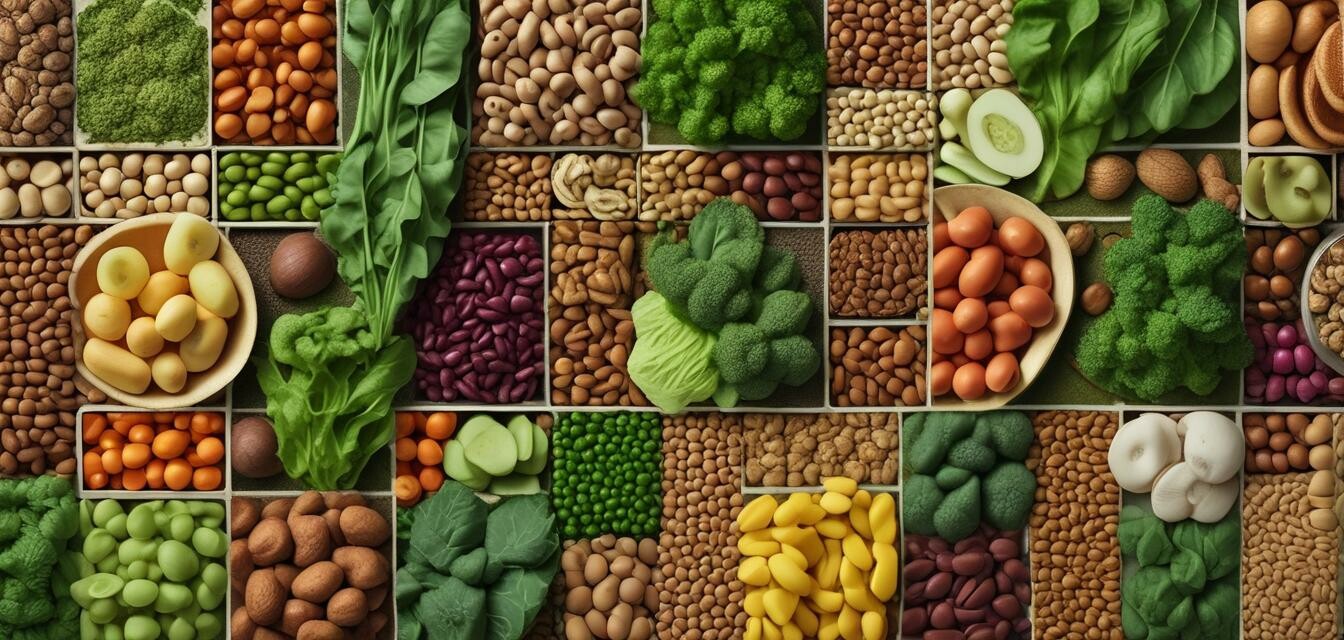
Vegan Nutrition Myths Debunked for 2024
Key Takeaways
- Many myths surround vegan nutrition, especially in sports.
- Protein intake concerns can be addressed with proper planning.
- Vegan diets can provide adequate nutrients for athlete performance.
- Understanding the role of supplements is essential for vegans.
- Debunking myths helps promote better acceptance of vegan diets for athletes.
As the conversation around plant-based nutrition continues to grow, especially within the sports community, several misconceptions persist. In this article, we’ll debunk some of the most common vegan nutrition myths that tend to overshadow the numerous benefits of a plant-based diet. This will help you make informed choices whether you're a seasoned vegan athlete or just exploring vegan options.
Myth 1: Vegans Can't Get Enough Protein
One of the most pervasive myths is that vegans struggle to meet their protein requirements. This misconception often arises from the lack of understanding of plant-based protein sources. Let's take a closer look at protein sources available to vegans:
| Plant-Based Protein Sources | Protein Content (per 100g) |
|---|---|
| Lentils | 9g |
| Chickpeas | 19g |
| Quinoa | 14g |
| Tofu | 8g |
| Tempeh | 19g |
| Peanuts | 26g |
As you can see, there are ample plant-based options that can easily help vegans meet their protein needs. For more insights on plant-based protein sources, check out our Vegan Protein Powders page.
Myth 2: Vegan Diets Lack Essential Nutrients
Another common concern is that vegan diets cannot fulfill essential nutrient requirements. While it’s true that some nutrients are less prevalent in animal products, there are plenty of plant-based alternatives to help meet these needs.
Key Nutrients to Consider
- Iron: Found in lentils, beans, and fortified cereals.
- Calcium: Available in leafy greens, fortified plant milks, and tofu.
- Vitamin B12: Important to supplement or find fortified foods.
- Omega-3 Fatty Acids: Available from flaxseeds, chia seeds, and walnuts.
For more detailed guidance, visit our Vegan Omega-3 Supplements page.
Myth 3: Vegans Have Insufficient Energy for Athletic Performance
Energy levels can undoubtedly be a concern for athletes. However, the right combination of carbohydrates, proteins, and fats from plant-based sources can provide sufficient energy for intense training and competition.
Energy-Sustaining Foods for Vegans
- Brown rice and other whole grains
- Nut butters for healthy fats
- Bananas and other fruits for quick energy
- Energy-dense snacks like trail mix
In fact, many elite athletes successfully compete at a high level on plant-based diets. If you’re looking for quick energy-boosting options, don’t forget to check our Plant-Based Pre-Workout section.
Myth 4: A Vegan Diet is Too Complicated
Transitioning to a vegan diet might initially seem complex, but with some planning, it can be straightforward and satisfying. Meal prepping and familiarizing yourself with vegan recipes can pave the way for a smooth transition.
Simple Tips for Easier Vegan Eating
- Plan your meals for the week.
- Have a variety of go-to recipes.
- Keep healthy snacks on hand.
- Explore online vegan resources for additional ideas.
Beginners' Section
- Start with familiar foods and gradually incorporate new vegan options.
- Learn about different plant-based protein sources.
- Experiment with flavors and spices to enhance your dishes.
- Join vegan communities for support and inspiration.
Myth 5: Veganism is Expensive
While some specialty vegan products can be pricey, a basic plant-based diet can actually be affordable. Staples such as beans, grains, and vegetables tend to be budget-friendly. The key is to focus on whole foods rather than processed vegan products.
| Grocery Item | Cost (per 100g) | Notes |
|---|---|---|
| Lentils | $0.15 | High protein, low cost |
| Quinoa | $0.80 | Rich in protein, slightly higher cost but versatile |
| Rice | $0.10 | Excellent staple, fills you up |
| Seasonal Vegetables | $0.50 | Nutritious and low-cost when in season |
Pros
- Variety of nutrients from diverse plant sources
- Lower environmental impact
- Ethical considerations
- Support for sports performance from vegan-friendly products
Cons
- Some nutrients may require special attention
- Transitioning can be challenging
- Potential for processed food temptations
Conclusion
As we move into 2024, it’s crucial to address these myths surrounding vegan nutrition in the sports community. By understanding the truths behind these misconceptions, vegans can enhance their health, performance, and overall diet. Always remember that with proper planning, a vegan diet can be not only adequate but also highly beneficial in meeting athletic needs.
Stay informed by exploring more about plant-based nutrition in our News and Trends section. By debunking these myths, we hope to inspire more athletes to embrace the plant-based lifestyle.

